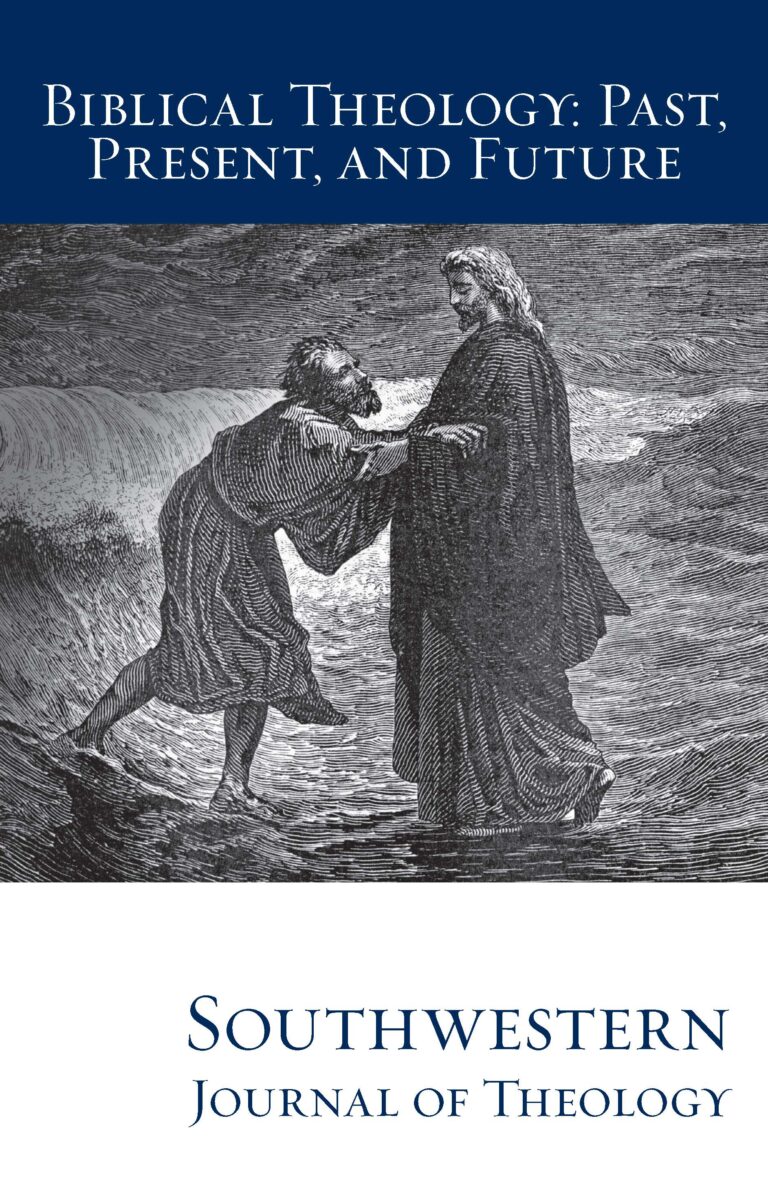
Biblical Theology: Past, Present, and Future (II)
Southwestern Journal of Theology
Volume 56, No. 1 – Fall 2013
Managing Editor: Terry L. Wilder
By J. Gordon McConville and Stephen N. Williams. The Two Horizons Old Testament Commentary. Grand Rapids: Eerdmans, 2010. 278 pages. Softcover, $20.00.
Joshua is the fourth book to be covered in the Two Horizon’s Old Testament Commentary series, in addition to Genesis, Lamentations, and Psalms. As the other volumes in this series each had only one author, this one adds a different dynamic to the series. The two authors, both noted scholars in the field, bring different perspectives and emphases, but they also add a layer of redundancy and occasional disagreements. Like the other books in this series, the intention is to bring together theological exegesis and theological reflection. The book is organized around alternating sections by the authors with some concluding interaction between them. McConville begins the commentary with a brief introduction that outlines the general content of the book, which is God’s fulfillment of His promise to give the Hebrew people the land of Israel and the subsequent distribution of the tribes within the land. Early and often in the short introduction, McConville highlights what becomes a prevalent theme throughout the commentary, the interrelationship between theology and history within the book of Joshua.
In the next section, McConville offers a compendious commentary on Joshua. The strength of this section is the demonstration of the interconnectedness of the book of Joshua with the rest of Scripture. However, the exegesis is marked by somewhat limited interaction with the Hebrew and an over-reliance on a limited number of sources. Of the 113 citations in the 80 pages of commentary, 46 of the references derive from three sources (Hawk, Nelson, and Hess).
The Theological Horizon section, by Williams, begins with a helpful discussion of the land. He includes an extended and thorough discussion on the question of genocide in the book. However, in trying to address questions related to science, he awkwardly backs himself in a corner and ends up presenting a thesis which questions the omnipotence of God (163). The next section, by McConville, addresses “Joshua and Biblical Theology.” It is not readily apparent how this section is distinguished from the previous section by Williams. In fact, both chapters include somewhat lengthy sections on the theological significance of the land and the question of evil and violence. McConville also includes in this section a discussion of the relationship of Joshua with books of the Pentateuch along with Judges and Kings.
Interestingly, this volume also includes sections where each author interacts with the material from the other. Williams uses his chapter to take issue with McConville on what he perceives to be McConville’s attempt to differentiate between biblical and theological approaches to the Biblical text. McConville, in his response to Williams, curiously spends the entire section emphasizing an area on which the two authors agree. In fact, the question of the historicity of the text is a recurrent theme throughout the sections by both authors. Yet, though the question repeatedly occurs in the commentary (3-5, 6-7, 10, 29, 31, 53, 119-20, 154-70, 17172, 190, 194-99, 207-14, and 230-35), with the authors clearly questioning the book’s historicity at several points, the authors essentially conclude rather benignly that the question itself does not really matter. One wonders, if the question of the historicity of the text is indeed a “distraction from engagement with the text as text” (213), and if it actually is the “prevailing view” (4) that the book is not factual, why is the matter so frequently and extensively addressed in a work with such limited space for commentary on the text?
In the end, even given the stated parameters of the series, this volume would have been strengthened with more collaboration between the authors which may have reduced some of the redundancies and allowed for greater interaction with the text. In this case, one of the horizons clearly overshadows the other, with theological exegesis getting the shorter end of the stick. Seemingly underserved are some of the rich exegetical gems of the book of Joshua that are overshadowed by the author’s theological preferences.





